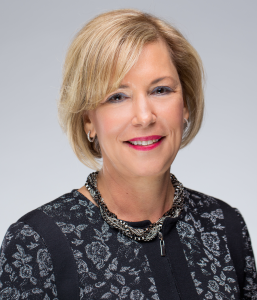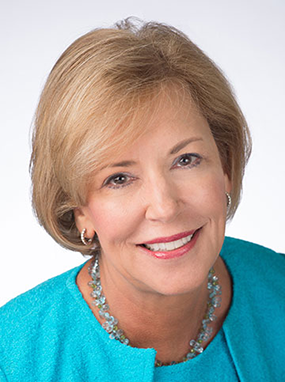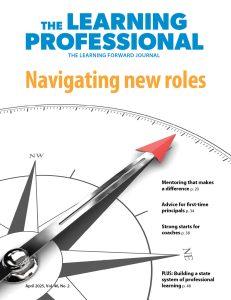What does it look like to create a compelling teacher leadership agenda at the school or district level? This is a question I’ve been hearing a lot lately, and I’m glad. It shows that school systems and schools are recognizing the importance of sharing responsibility for all students and leadership among all education professionals.
Learning Forward strives to serve those educators who recognize the power of collaborative professionalism, no matter what their title — teacher, principal, consultant, director, superintendent, and more. We know they share our beliefs and assumptions as a foundation for their work.
Learning Forward’s vision is excellent teaching and learning every day, and our mission is to build the capacity of leaders to develop great systems of professional learning. Let’s look at Learning Forward’s beliefs to explore more deeply how teachers share leadership with other learning leaders for continuous improvement for the sake of students.
[embedyt] https://www.youtube.com/watch?v=h-VXmRtF2tA[/embedyt]
- Successful leaders create and sustain a culture of learning. The foundation for effective teacher leadership is a culture of learning that supports the development of knowledge, skills, and practices of all lead learners. Within such cultures, districts and school buildings are proud to display signs like: “At school, everyone’s job is to learn.” Such cultures value learning anytime, anywhere. Leaders who cultivate such cultures provide adequate resources and elevate learning’s importance at every opportunity, whether through conversations with community members or celebrations of outstanding results for students.
- Effective school systems commit to continuous improvement for all adults and students. The fundamental purpose of professional learning is continuous improvement. For Learning Forward, continuous improvement means every educator is engaged as an active participant in at least one learning team that meets regularly to examine data to establish student and team member learning priorities, plan and execute adult learning, study and plan for implementation of lessons and assessments, and discuss and reflect on impact of actions. This learning cycle is aligned with the revisions to the definition of professional development in the new federal legislation. We believe the cycle contributes to teacher leadership in many ways, from offering teachers opportunities to facilitate learning and identify critical challenges to ensuring teachers collaborate to take responsibility for all student learners.
- Professional learning that improves educator effectiveness is fundamental to student learning. Investments in professional learning and teacher leadership are deliberate, intentional, and evidence-driven. Improvement-oriented leaders, whether they are teachers, principals, or central office administrators, document the impact of such investments to ensure effectiveness. In districts and schools that share and develop leadership among all educators, everyone recognizes the critical connection between professional learning and educator effectiveness and its link to student achievement. When all learning leaders hold this commitment, they waste no resource, including time on activities that do not contribute to intended outcomes.
- All educators have an obligation to improve their practice. Teacher leaders recognize that their continuous learning is not only a responsibility but also an obligation. They are obliged to stand before their students and colleagues demonstrating their commitment to continually find ways to improve their practice. Until all students are achieving at their full potential, all educators have an obligation to continue to seek new learning and strategies to advance their success. Their obligation is not only to their students but also to their colleagues.
- More students achieve when educators assume collective responsibility for student learning. Teacher leaders know that their success means their colleagues’ success. They want every parent to bring their child to school believing that the entire teacher team shares responsibility for their child’s success. Parents do not want to have to worry about which teacher is assigned to their child. Parents will have greater confidence in all teachers and schools when school and system leaders create structures and systems that ensure that teachers collaborate and share responsibility for the success of each student in a particular grade level or subject matter.
Learning Forward believes that a compelling vision and mission and a solid set of beliefs and assumptions for a teacher leadership agenda will propel the work forward. What beliefs and assumptions inform your teacher leadership agenda? How does district leadership create structures that contribute to an intentional plan for supporting upcoming leaders? I hope Learning Forward’s beliefs are helpful as you craft your own.









